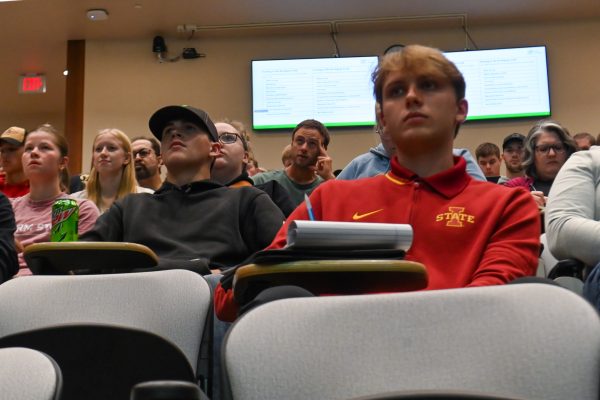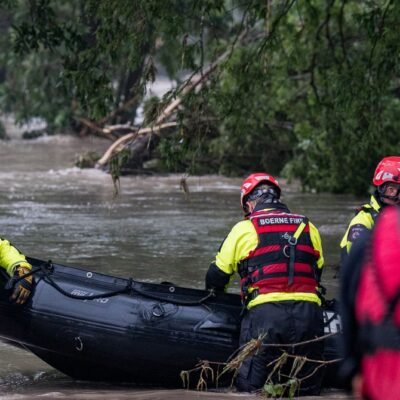C.S. Liew, managing director of Singapore-based Pacific Agriscience, said that sustainable agriculture must prevail to feed the world at the Gerdin Business Building Wednesday.
Liew, who is a graduate of Iowa State in agronomy and integrated pest management, gave a presentation titled, “Can Sustainable Agriculture Feed The World?”. Liew has over 45 years of global experience in the agriculture inputs industry.
Liew has also served in many prestigious positions, including council member of the World Agriculture Forum and member of the advisory board of Agribusiness Global.
“We can in fact already feed nine to 10 billion people today,” Liew said. “Food is already overproduced. We may have food shortages from time to time in different parts of the world, but the world as a whole does not face any food security issues.”
Liew expressed a few key reasons as to why the world does not face food security now nor within the future.
New technologies have not yet been built, Liew said. Based on how far agriculture has grown and prosper today, Liew has high aspirations on what the future of agriculture and sustainability will look like with new advancements.
Farmers do not need more land for farming. Instead, Liew proposed that farmers need to increase yield and reduce post harvest losses.
“Between the year 2000 and 2020, there was a 52% increase in food production, and only a small part of that was due to increase in cultivation in terms of using more land,” Liew said.
Liew said that the 52% increase was due to yield increases from the advancements of technologies in agriculture. Using the correct innovations, and the right cultivation practices can already increase yield substantially, Liew said.
Crops harvested by farmers are used for biodiesel and bioethanol byproducts, which uses a tremendous amount of food crops.
Liew proposed the idea that “food that is used for fuel can be diverted to the dinner plate.” He said that by taking crops and resources being used for the by-products of bioethanol and biodiesel, we can instead use them for consumption.
“60% of the world’s available land that is not yet cultivated lies in Sahara, Africa, as well as Brazil,” Liew said.
The land that is not utilized and is line adjacent to existing farmers that offer the same qualities as here in the United States.
Farmers are not yet utilizing this land yet because there is not enough money to invest, Liew said. This is also due to the fact of return on investment (ROI).

Phoebe Garrett, a junior majoring in agriculture and rural policy, said Liew’s presentation brought a new perspective.
“Liew brought in a new aspect [that] if we increase our technology uses in our poor and developing countries and increase their production, their after harvest losses reduces would be able to feed the population a lot better than we are expecting,” Garrett said.
Harley Baumler, a junior majoring in agriculture and rural policy, said that she appreciates the global perspective Liew brought.
“This was different since we go to Iowa State, which is state-wide, we hear about just that state, but this gave a large global perspective that made me broaden my perspective,” Baumler said.
“Sustainable and regenerative agriculture must prevail to feed the world now and in the future,” Liew said.


